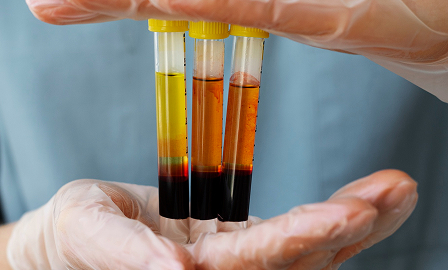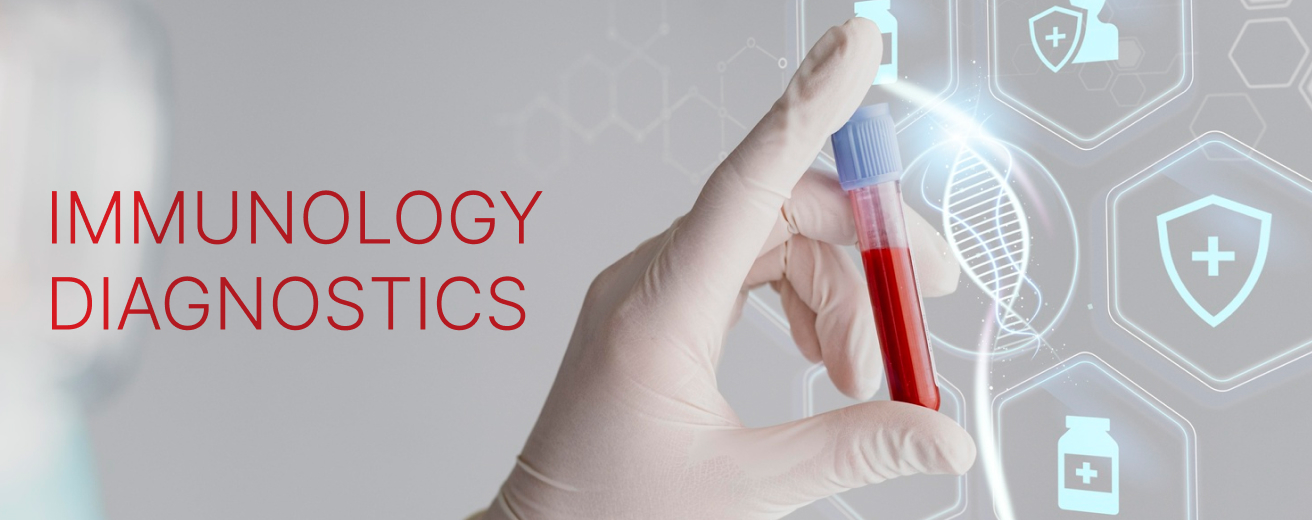OVERVIEW
Immunology diagnostics are essential for identifying and managing disorders of the immune system, including autoimmune conditions, allergies, and immunodeficiencies. Through antibody profiling, cellular assays, and biomarker analysis, these tests enable clinicians to uncover immune dysfunction and tailor precise, patient-centric treatment strategies.
Ongoing advances in immunodiagnostics are enhancing sensitivity and specificity, allowing earlier detection and better monitoring of immune-related diseases.

PROCESS

Immune Profiling
Interpretation of test data is used to evaluate immune competency, identify immune-mediated pathologies, and monitor therapeutic efficacy over time.

Immune System Clues
The presence of autoimmune markers, chronic inflammatory patterns, or evidence of immunodeficiency may indicate underlying immune dysregulation, warranting further investigation.

Biomarker Detection
Quantification of immunologic biomarkers, such as antibodies, cytokines, and immune cell populations, is performed using ELISA, flow cytometry, or multiplex immunoassays to support diagnostic and prognostic assessments.

